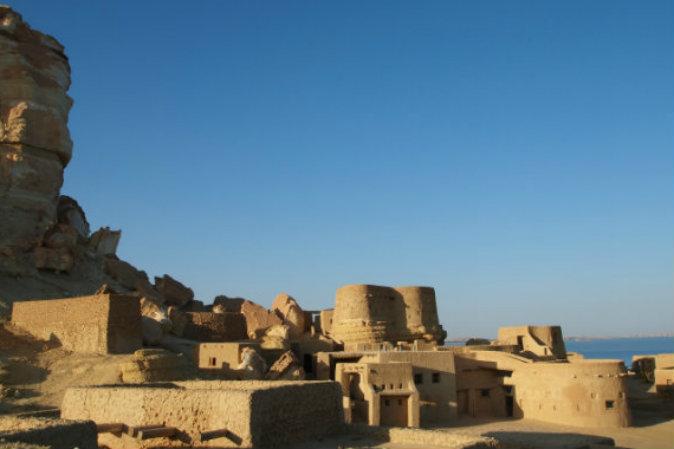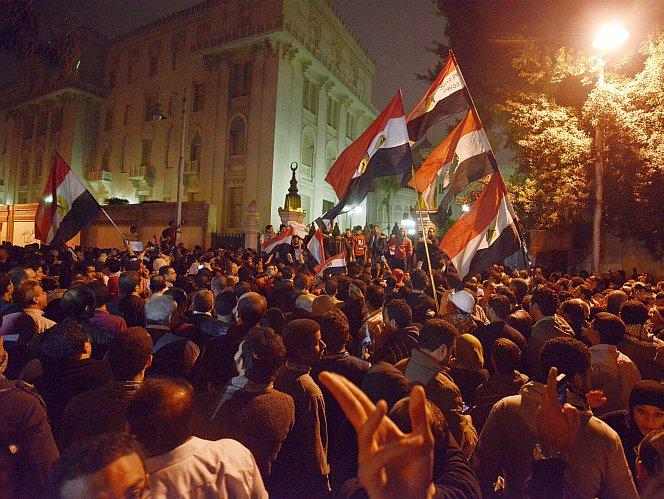[youtube]qDHLsU-ik_Y[/youtube]It was a small protest by Tunisian or Egyptian standards, only 1,500 people, but the spontaneous gathering in Damascus on Thursday may turn out to be the spark that ignites mass demonstrations in Syria.
It began with a Syrian man and traffic police in the Hari'a Neighborhood in Old Damascus. According to reports and an anonymous video that have seeped out of the police state, an officer insulted a man who then returned the insult. When the policeman began beating him with a stick, a scuffle broke out. More police arrived at the scene, drawing the attention of passersby, which soon grew into a crowd.
The crowd turned into a protest. They complained about living standards and shouted anti-corruption slogans, calling officials “thieves” and chanting, “Syrian people will not be humiliated.” For four or five hours angry men were gathered outside a Hari’a police station, in a rare outburst of public anger.
The impromptu demonstrators did not shout anti-regime slogans—but neither did they pick up the pro-President Bashar al-Assad slogans shouted by some plainclothes security officers, according to the reports.
In a surprising turn of events, a man identified as Syria’s minister of Interior (recorded speaking to the crowd in the video) showed up on the scene to try to calm the situation. He then escorted the arrested man out of the police station and took him away in his own car. The demonstration appeared to end peacefully, although people remained in the streets until after 4 p.m. continuing their complaints about poverty and corruption.
The video of the protests was posted anonymously on YouTube and a link was sent from an unknown e-mail address out to the Syrian dissident community. Given the number of cell phones visible in the footage, it’s likely not the only recording, but it’s the one getting attention from Syria-watchers.
Ammar Abdulhamid, a Syrian pro-democracy and human rights activist who lives in exile in Washington, D.C., says from what he knows from his networks, the gathering was spontaneous and not organized by opposition leaders.
“This is how things will happen in Syria,” commented Abdulhamid regarding the prospects of another Tunisia or Egypt in Syria.
“Whether they want to say ‘down with Bashar’ at this stage or not, is entirely up to them,” he said, at the same time noting that the crowd’s refusal to join the pro-Assad chants, shows clearly their true feelings.
Abdulhamid thinks the crowds shouting anti-corruption slogans may be the start of the same process that ultimately brought down the long-time dictators in Tunisia and Egypt. “This is how people begin finding their own voices,” he said.
The noted activist was forced to leave Syria in 2005 for his pro-democracy efforts and criticism of President Assad. He is the son of the legendary Syrian actress Muna Wassef, one of the highest paid actresses in the Arab world.
According to Abdulhamid, the incident shows how it is getting on the Syrian “people’s nerves” that those in position of authority, like police, abuse their power with impunity. The abuses range from humiliating civilians, as happened on Thursday, to the use of torture in prisons.
“Our responsibility to these people is to make them more aware of nonviolent tactics, so they can organize themselves and demand their rights,” said Abdulhamid who believes the protest was inspired by the successful uprisings in Tunisia and Egypt.
According to dissident sources, the Interior minister said that the police who attempted to beat up the civilian will be punished.
The last “mass” protest in Syria was in 2005. Organized by government opposition leaders, it drew approximately 300 people. Security dispersed the demonstrators, and the opposition leaders were later arrested, some of who remain in prison until today.
The current President Assad took over power from his father Hafez al-Assad when he died in 2000, after three decades of rule. Syria has been under emergency rule since 1963, the year the National Council of the Revolutionary Command assumed control of the country. In Human Rights Watch recently published world report, it states that in 2010 Syrian authorities “continued to broadly violate the civil and political rights of citizens, arresting political and human rights activists, censoring websites, detaining bloggers, and imposing travel bans.”
In a rare step toward more openness, largely interpreted as an attempt to curry public favor, during the Egypt protests the regime unblocked Facebook and Twitter—the social networking sites seminal in spelling the end for the dictators in Egypt and Tunisia.
It began with a Syrian man and traffic police in the Hari'a Neighborhood in Old Damascus. According to reports and an anonymous video that have seeped out of the police state, an officer insulted a man who then returned the insult. When the policeman began beating him with a stick, a scuffle broke out. More police arrived at the scene, drawing the attention of passersby, which soon grew into a crowd.
The crowd turned into a protest. They complained about living standards and shouted anti-corruption slogans, calling officials “thieves” and chanting, “Syrian people will not be humiliated.” For four or five hours angry men were gathered outside a Hari’a police station, in a rare outburst of public anger.
The impromptu demonstrators did not shout anti-regime slogans—but neither did they pick up the pro-President Bashar al-Assad slogans shouted by some plainclothes security officers, according to the reports.
In a surprising turn of events, a man identified as Syria’s minister of Interior (recorded speaking to the crowd in the video) showed up on the scene to try to calm the situation. He then escorted the arrested man out of the police station and took him away in his own car. The demonstration appeared to end peacefully, although people remained in the streets until after 4 p.m. continuing their complaints about poverty and corruption.
The video of the protests was posted anonymously on YouTube and a link was sent from an unknown e-mail address out to the Syrian dissident community. Given the number of cell phones visible in the footage, it’s likely not the only recording, but it’s the one getting attention from Syria-watchers.
Ammar Abdulhamid, a Syrian pro-democracy and human rights activist who lives in exile in Washington, D.C., says from what he knows from his networks, the gathering was spontaneous and not organized by opposition leaders.
“This is how things will happen in Syria,” commented Abdulhamid regarding the prospects of another Tunisia or Egypt in Syria.
“Whether they want to say ‘down with Bashar’ at this stage or not, is entirely up to them,” he said, at the same time noting that the crowd’s refusal to join the pro-Assad chants, shows clearly their true feelings.
Abdulhamid thinks the crowds shouting anti-corruption slogans may be the start of the same process that ultimately brought down the long-time dictators in Tunisia and Egypt. “This is how people begin finding their own voices,” he said.
The noted activist was forced to leave Syria in 2005 for his pro-democracy efforts and criticism of President Assad. He is the son of the legendary Syrian actress Muna Wassef, one of the highest paid actresses in the Arab world.
According to Abdulhamid, the incident shows how it is getting on the Syrian “people’s nerves” that those in position of authority, like police, abuse their power with impunity. The abuses range from humiliating civilians, as happened on Thursday, to the use of torture in prisons.
“Our responsibility to these people is to make them more aware of nonviolent tactics, so they can organize themselves and demand their rights,” said Abdulhamid who believes the protest was inspired by the successful uprisings in Tunisia and Egypt.
According to dissident sources, the Interior minister said that the police who attempted to beat up the civilian will be punished.
The last “mass” protest in Syria was in 2005. Organized by government opposition leaders, it drew approximately 300 people. Security dispersed the demonstrators, and the opposition leaders were later arrested, some of who remain in prison until today.
The current President Assad took over power from his father Hafez al-Assad when he died in 2000, after three decades of rule. Syria has been under emergency rule since 1963, the year the National Council of the Revolutionary Command assumed control of the country. In Human Rights Watch recently published world report, it states that in 2010 Syrian authorities “continued to broadly violate the civil and political rights of citizens, arresting political and human rights activists, censoring websites, detaining bloggers, and imposing travel bans.”
In a rare step toward more openness, largely interpreted as an attempt to curry public favor, during the Egypt protests the regime unblocked Facebook and Twitter—the social networking sites seminal in spelling the end for the dictators in Egypt and Tunisia.


